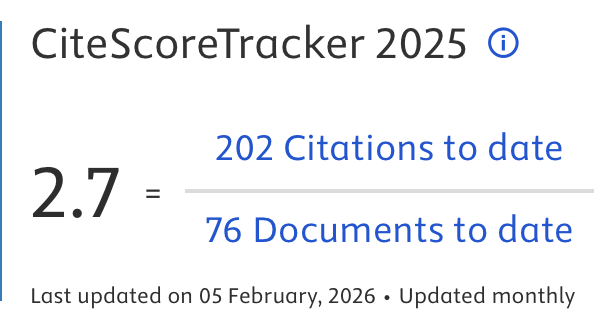Pemahaman Hadis Tentang Poligami (Sebuah Kajian Teologis Terhadap Hadis-hadis Sosial tentang Poligami)
DOI:
https://doi.org/10.14421/qh.2016.1702-02Abstract
In this article, the author tries to see about polygamy obey Islam. Poligamy is something always happens around human life. Issues of polygamy is very often discussed. Controversy about what is right and wrong fittingly never end. as written in the Qur’an has been widely described. However, the hadith of the Propet Muhammad as the highest authority after the Qur’an. In here the outhor will be include some text Qur’an and hadith was related trough the viewpoint of existing traditions in the book of tafsir. So it can be taken a cloncusion and results may provide additional insight into the solution and for all.Keywords: poligami, islam
References
Mulia, Musdah , Pandanagan Islam tentang Poligami, jakarta: The asia Foundation, 1999.
Gusmian, Islah, Mengapa Nabi Muhammad berpoligami?, Yogyakarta: Pustaka Marwa, 2007.
Siti Musdah, Mulia, Islam menggugat poligami, Jakarta: Gramedia, 2004.
oleh Musdah Mulia dalam pandangan Islam tentang Poligami(jakarta: The asia Foundation, 1999.
al- Shiba’i, Musthafa, Wanita di Antara Hukum Perundang-Undangan, terj.Chadidjah Nasutiaon, Jakarta: Bulan Bintang, 1977.
Majalah sabili, no 12 TH.IV / 28 Desenber 2006.
Haikal, Abduttawab, Rahasia Perkawinan Rasulullah SAW: Poligami dalam Islam VS Poligami Monogami Barat, Jakarta: Pedoman Ilmu Jaya, 1993.
Arnita,”Hadis Riwayat Ibn Abbas tentang Poligami (Studi Sanad Dan Matan Hadis)” ,Skripsi Fakultas Ushuludin UIN Sunan Klijaga, Yogyakarta, 2005
CD Jawami’ al-Kalim, V4,5.
Ismail, M. Syuhudi, Hadis Nabi Yang Tekstual dan Kontekstual, Jakarta: Bulan Bintang, 1994.
al-Adlabi, Sala al-Din, Manhaj Naqd al-Matan, Beirut: Da al-Afaq al-Jadilah, 1403 H.
Ismail, Syuhudi, Metodologi Penelitian Hadis Nabi, Jakarta: Bulan Bintang, 1992.
Haikal, Abduttawab, Rahasia Perkawinan Rasulullah SAW: Poligami dalam Islam VS Poligami Monogami Barat, Jakarta: Pedoman Ilmu Jaya, 1993.
Downloads
Published
Issue
Section
License
Publishing your paper with Jurnal Studi Ilmu-ilmu al-Qur'an dan Hadis means that the author or authors retain the copyright in the paper. Jurnal Studi Ilmu-ilmu al-Qur'an dan Hadis uses license CC-BY-NC-ND or an equivalent license as the optimal license for the publication, distribution, use, and reuse of scholarly works. This license permits anyone to copy and redistribute the material in any medium or format and must give appropriate credit, provide a link to the license, and indicate if changes were made. If you remix, translate, transform or build upon the material you may use it for private use only and not for distribution. Jurnal Studi Ilmu-ilmu al-Qur'an dan Hadis granted an exclusive non-commercial reuse license by the author(s), but the author(s) are able to put the paper onto a website, distribute it to colleagues, give it to students, use it in your thesis, etc, so long as the use is not directed at a commercial advantage or toward private monetary gain. The author(s) can reuse the figures and tables and other information contained in their paper published by Jurnal Studi Ilmu-ilmu al-Qur'an dan Hadis in future papers or work without having to ask anyone for permission, provided that the figures, tables, or other information that is included in the new paper or work properly references the published paper as the source of the figures, tables or other information, and the new paper or work is not direct at a private monetary gain or commercial advantage.
Jurnal Studi Ilmu-ilmu al-Qur'an dan Hadis journal Open Acces articles are distrubuted under the Creative Commons Attribution-NonCommercial-NoDerivatives 4.0 International (CC BY-NC-ND 4.0). Article can be read, copy and redistribute the material ini any medium or format under the following conditions:
Attribution — You must give appropriate credit, provide a link to the license, and indicate if changes were made. You may do so in any reasonable manner, but not in any way that suggests the licensor endorses you or your use.
NonCommercial — You may not use the material for commercial purposes.
NoDerivatives — If you remix, transform, or build upon the material, you may not distribute the modified material.










